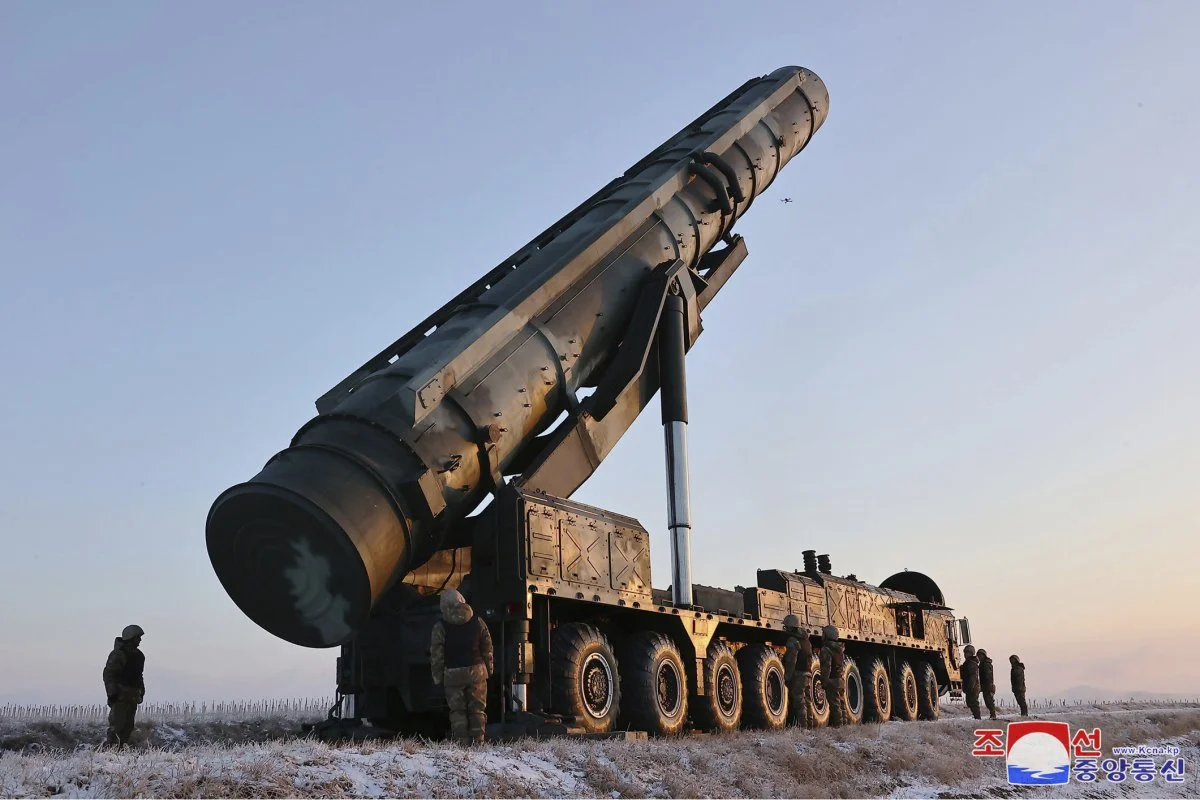North Korean leader Kim Jong Un would face the end of his regime if he ever used his isolated country’s nuclear weapons against the South, Seoul’s president said Tuesday.
President Yoon Suk Yeol was speaking at an event to mark the anniversary of the founding of South Korea’s armed forces, with a military parade and fighter jet flyover in central Seoul scheduled for later in the day.
“If North Korea attempts to use nuclear weapons, it will face the resolute and overwhelming response of our military,” Yoon said, addressing 5,300 service members gathered at Seoul Air Base for the celebration.
“That day will mark the end of the North Korean regime,” he added, pointing to the strength of the country’s security alliance with the United States, which stations tens of thousands of troops in the South.
South Korea showcased its largest ballistic missile — the Hyunmoo-5, which is capable of destroying underground bunkers — for the first time as part of the event.
An American B-1B heavy bomber also staged a flyover flanked by F-15K jets to demonstrate the security alliance between Seoul and Washington.
North Korea slammed the flight in a statement by Kim Kang Il, the vice-minister of national defense, carried by the official Korean Central News Agency.
The North Korean military would be “keenly watching the frequent deployment” of such strategic assets, he said, adding that Pyongyang’s military was “fully prepared to thoroughly defend” the nuclear-armed state.
Yoon’s warning comes weeks after the North disclosed images of a uranium enrichment facility for the first time, showing leader Kim Jong Un touring the site as he called for more centrifuges to boost the country’s nuclear arsenal.
South Korea’s spy agency later stated that the unprecedented disclosure was “directed at the US” and that North Korea was believed to be capable of producing a double-digit number of nuclear weapons from its stockpile of highly enriched uranium and plutonium.
Last week, a lawmaker told reporters that the National Intelligence Service had warned the North might carry out another nuclear test — its seventh — after the US elections in November.
For the second consecutive year, the South Korean government is staging a military street parade through Seoul’s central Gwanghwamun Square, involving 3,000 personnel and 80 pieces of equipment.
The last time Seoul held consecutive military street parades for Armed Forces Day was in 1984, under the dictatorial rule of the late Chun Doo-hwan.




